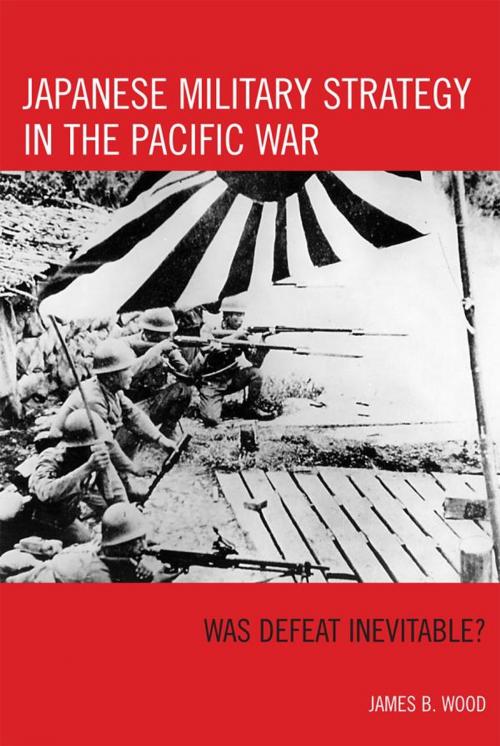Japanese Military Strategy in the Pacific War
Was Defeat Inevitable?
Nonfiction, History, Asian, Japan, Military, World War II| Author: | James B. Wood | ISBN: | 9781461638087 |
| Publisher: | Rowman & Littlefield Publishers | Publication: | August 5, 2007 |
| Imprint: | Rowman & Littlefield Publishers | Language: | English |
| Author: | James B. Wood |
| ISBN: | 9781461638087 |
| Publisher: | Rowman & Littlefield Publishers |
| Publication: | August 5, 2007 |
| Imprint: | Rowman & Littlefield Publishers |
| Language: | English |
In this provocative history, James B. Wood challenges the received wisdom that Japan's defeat in the Pacific was historically inevitable. He argues instead that it was only when the Japanese military prematurely abandoned its original sound strategic plan—to secure the resources Japan needed and establish a viable defensible perimeter for the Empire—that the Allies were able to regain the initiative and lock Japanese forces into a war of attrition they were not prepared to fight. The book persuasively shows how the Japanese army and navy had both the opportunity and the capability to have fought a different and more successful war in the Pacific that could have influenced the course and outcome of World War II. It is therefore a study both of Japanese defeat and of what was needed to achieve a potential Japanese victory, or at the very least, to avoid total ruin.
Wood's argument does not depend on signal individual historical events or dramatic accidents. Instead it examines how familiar events could have become more complicated or problematic under different, but nevertheless historically possible, conditions due to changes in the complex interaction of strategic and operational factors over time. Wood concludes that fighting a different war was well within the capacities of imperial Japan. He underscores the fact that the enormous task of achieving total military victory over Japan would have been even more difficult, perhaps too difficult, if the Japanese had waged a different war and the Allies had not fought as skillfully as they did. If Japan had traveled that alternate military road, the outcome of the Pacific War could have differed significantly from that we know so well—and, perhaps a little too complacently, accept.
In this provocative history, James B. Wood challenges the received wisdom that Japan's defeat in the Pacific was historically inevitable. He argues instead that it was only when the Japanese military prematurely abandoned its original sound strategic plan—to secure the resources Japan needed and establish a viable defensible perimeter for the Empire—that the Allies were able to regain the initiative and lock Japanese forces into a war of attrition they were not prepared to fight. The book persuasively shows how the Japanese army and navy had both the opportunity and the capability to have fought a different and more successful war in the Pacific that could have influenced the course and outcome of World War II. It is therefore a study both of Japanese defeat and of what was needed to achieve a potential Japanese victory, or at the very least, to avoid total ruin.
Wood's argument does not depend on signal individual historical events or dramatic accidents. Instead it examines how familiar events could have become more complicated or problematic under different, but nevertheless historically possible, conditions due to changes in the complex interaction of strategic and operational factors over time. Wood concludes that fighting a different war was well within the capacities of imperial Japan. He underscores the fact that the enormous task of achieving total military victory over Japan would have been even more difficult, perhaps too difficult, if the Japanese had waged a different war and the Allies had not fought as skillfully as they did. If Japan had traveled that alternate military road, the outcome of the Pacific War could have differed significantly from that we know so well—and, perhaps a little too complacently, accept.















